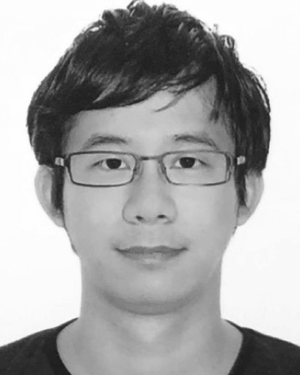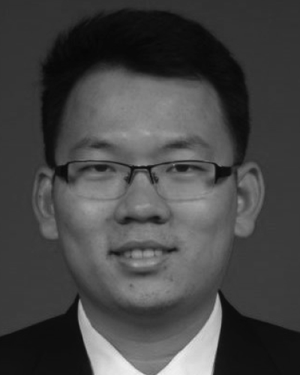Abstract:
Existing adherent raindrop removal methods focus on the detection of the raindrop locations, and then use inpainting techniques or generative networks to recover the back...Show MoreMetadata
Abstract:
Existing adherent raindrop removal methods focus on the detection of the raindrop locations, and then use inpainting techniques or generative networks to recover the background behind raindrops. Yet, as adherent raindrops are diverse in sizes and appearances, the detection is challenging for both single image and video. Moreover, unlike rain streaks, adherent raindrops tend to cover the same area in several frames. Addressing these problems, our method employs a two-stage video-based raindrop removal method. The first stage is the single image module, which generates initial clean results. The second stage is the multiple frame module, which further refines the initial results using temporal constraints, namely, by utilizing multiple input frames in our process and applying temporal consistency between adjacent output frames. Our single image module employs a raindrop removal network to generate initial raindrop removal results, and create a mask representing the differences between the input and initial output. Once the masks and initial results for consecutive frames are obtained, our multiple-frame module aligns the frames in both the image and feature levels and then obtains the clean background. Our method initially employs optical flow to align the frames, and then utilizes deformable convolution layers further to achieve feature-level frame alignment. To remove small raindrops and recover correct backgrounds, a target frame is predicted from adjacent frames. A series of unsupervised losses are proposed so that our second stage, which is the video raindrop removal module, can self-learn from video data without ground truths. Experimental results on real videos demonstrate the state-of-art performance of our method both quantitatively and qualitatively.
Published in: IEEE Transactions on Image Processing ( Volume: 31)
Funding Agency:

Department of Electrical and Computer Engineering, Yale-NUS College, National University of Singapore, Singapore
Wending Yan received the B.Eng. degree from the School of Electrical and Electronic Engineering, Nanyang Technological University, Singapore, in 2012. He is currently pursuing the Ph.D. degree in computer vision and deep learning with the Electrical and Computer Engineering Department, National University of Singapore, Singapore. His research interests include low-level vision, image restoration, and particularly under ba...Show More
Wending Yan received the B.Eng. degree from the School of Electrical and Electronic Engineering, Nanyang Technological University, Singapore, in 2012. He is currently pursuing the Ph.D. degree in computer vision and deep learning with the Electrical and Computer Engineering Department, National University of Singapore, Singapore. His research interests include low-level vision, image restoration, and particularly under ba...View more

College of Information Science and Engineering, Northeastern University, Shenyang, China
Lu Xu received the bachelor’s degree in digital media technology from Northeastern University, Shenyang, China. He is currently pursuing the Ph.D. degree with the College of Information Science and Engineering, Northeastern University, Shenyang. His research interests include image /video enhancement and related vision problems.
Lu Xu received the bachelor’s degree in digital media technology from Northeastern University, Shenyang, China. He is currently pursuing the Ph.D. degree with the College of Information Science and Engineering, Northeastern University, Shenyang. His research interests include image /video enhancement and related vision problems.View more

School of Electrical and Electronic Engineering, Nanyang Technological University, Singapore
Wenhan Yang (Member, IEEE) received the B.S. and Ph.D. degrees (Hons.) in computer science from Peking University, Beijing, China, in 2012 and 2018, respectively. He was a Postdoctoral Research Fellow at the Department of Computer Science, City University of Hong Kong, from 2019 to 2021. He is currently a Presidential Postdoctoral Fellow with the School of EEE, Nanyang Technological University, Singapore. His current rese...Show More
Wenhan Yang (Member, IEEE) received the B.S. and Ph.D. degrees (Hons.) in computer science from Peking University, Beijing, China, in 2012 and 2018, respectively. He was a Postdoctoral Research Fellow at the Department of Computer Science, City University of Hong Kong, from 2019 to 2021. He is currently a Presidential Postdoctoral Fellow with the School of EEE, Nanyang Technological University, Singapore. His current rese...View more

Department of Electrical and Computer Engineering, Yale-NUS College, National University of Singapore, Singapore
Robby T. Tan (Member, IEEE) received the Ph.D. degree in computer science from the University of Tokyo. He was an Assistant Professor at Utrecht University. He is an Associate Professor with the Yale–NUS College and the ECE (Electrical and Computing Engineering), National University of Singapore. His research interests include computer vision and deep learning, particularly in the domains of low level vision (bad weather/...Show More
Robby T. Tan (Member, IEEE) received the Ph.D. degree in computer science from the University of Tokyo. He was an Assistant Professor at Utrecht University. He is an Associate Professor with the Yale–NUS College and the ECE (Electrical and Computing Engineering), National University of Singapore. His research interests include computer vision and deep learning, particularly in the domains of low level vision (bad weather/...View more

Department of Electrical and Computer Engineering, Yale-NUS College, National University of Singapore, Singapore
Wending Yan received the B.Eng. degree from the School of Electrical and Electronic Engineering, Nanyang Technological University, Singapore, in 2012. He is currently pursuing the Ph.D. degree in computer vision and deep learning with the Electrical and Computer Engineering Department, National University of Singapore, Singapore. His research interests include low-level vision, image restoration, and particularly under bad weather.
Wending Yan received the B.Eng. degree from the School of Electrical and Electronic Engineering, Nanyang Technological University, Singapore, in 2012. He is currently pursuing the Ph.D. degree in computer vision and deep learning with the Electrical and Computer Engineering Department, National University of Singapore, Singapore. His research interests include low-level vision, image restoration, and particularly under bad weather.View more

College of Information Science and Engineering, Northeastern University, Shenyang, China
Lu Xu received the bachelor’s degree in digital media technology from Northeastern University, Shenyang, China. He is currently pursuing the Ph.D. degree with the College of Information Science and Engineering, Northeastern University, Shenyang. His research interests include image /video enhancement and related vision problems.
Lu Xu received the bachelor’s degree in digital media technology from Northeastern University, Shenyang, China. He is currently pursuing the Ph.D. degree with the College of Information Science and Engineering, Northeastern University, Shenyang. His research interests include image /video enhancement and related vision problems.View more

School of Electrical and Electronic Engineering, Nanyang Technological University, Singapore
Wenhan Yang (Member, IEEE) received the B.S. and Ph.D. degrees (Hons.) in computer science from Peking University, Beijing, China, in 2012 and 2018, respectively. He was a Postdoctoral Research Fellow at the Department of Computer Science, City University of Hong Kong, from 2019 to 2021. He is currently a Presidential Postdoctoral Fellow with the School of EEE, Nanyang Technological University, Singapore. His current research interests include image/video processing/restoration, bad weather restoration, and human-machine collaborative coding.
Wenhan Yang (Member, IEEE) received the B.S. and Ph.D. degrees (Hons.) in computer science from Peking University, Beijing, China, in 2012 and 2018, respectively. He was a Postdoctoral Research Fellow at the Department of Computer Science, City University of Hong Kong, from 2019 to 2021. He is currently a Presidential Postdoctoral Fellow with the School of EEE, Nanyang Technological University, Singapore. His current research interests include image/video processing/restoration, bad weather restoration, and human-machine collaborative coding.View more

Department of Electrical and Computer Engineering, Yale-NUS College, National University of Singapore, Singapore
Robby T. Tan (Member, IEEE) received the Ph.D. degree in computer science from the University of Tokyo. He was an Assistant Professor at Utrecht University. He is an Associate Professor with the Yale–NUS College and the ECE (Electrical and Computing Engineering), National University of Singapore. His research interests include computer vision and deep learning, particularly in the domains of low level vision (bad weather/nighttime, color analysis, physics-based vision, optical flow, etc.), human pose/motion analysis, and applications of deep learning in healthcare.
Robby T. Tan (Member, IEEE) received the Ph.D. degree in computer science from the University of Tokyo. He was an Assistant Professor at Utrecht University. He is an Associate Professor with the Yale–NUS College and the ECE (Electrical and Computing Engineering), National University of Singapore. His research interests include computer vision and deep learning, particularly in the domains of low level vision (bad weather/nighttime, color analysis, physics-based vision, optical flow, etc.), human pose/motion analysis, and applications of deep learning in healthcare.View more


